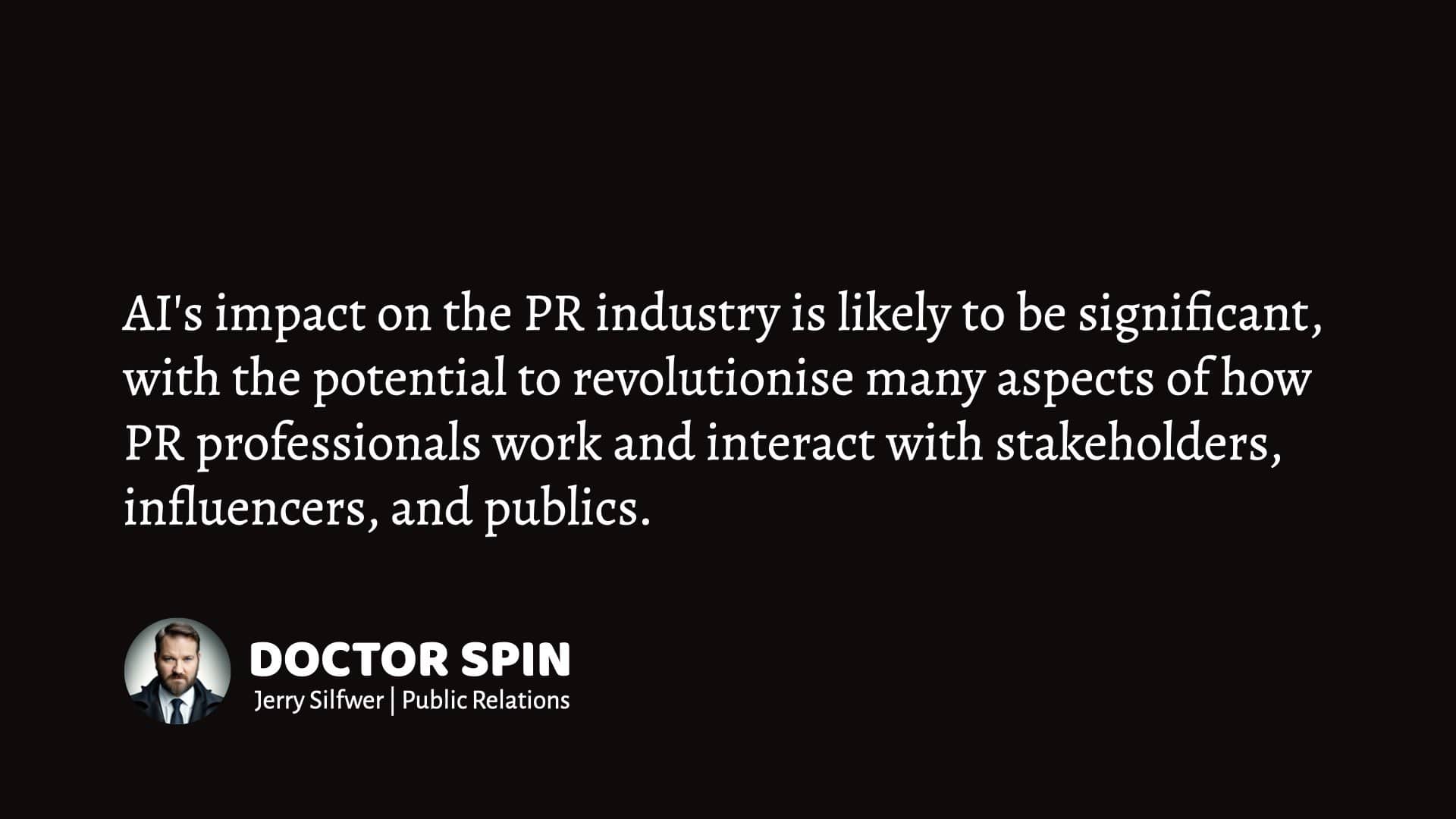Disclaimer: I’m a PR professional who enjoys thinking, reading, and learning about topics far beyond my academic background.
I think of consciousness as an illusion.
This brief blog post explores the historically provocative idea that human consciousness might be an emergent illusion rather than a distinct, tangible entity.
Based on the gradations of consciousness, its potential as an emergent property of complex neural interactions, and its implications for the free will debate and artificial intelligence, I suggest we rethink the nature of self-awareness and its place in the natural world.
Here we go:
A Critical Indistinguishability
The nature of consciousness has long been a subject of philosophical debate and scientific inquiry. Traditional views tend to treat consciousness as a concrete aspect of human experience.
However, an alternative perspective suggests that consciousness might be an emergent illusion — a byproduct of complex neural processes. This hypothesis challenges our fundamental understanding of consciousness and its role in human cognition and behaviour.
A critical aspect of the illusion hypothesis is the difficulty in distinguishing between the experience of being conscious and the belief that one is conscious. This indistinguishability raises questions about the objective existence of consciousness as a separate entity.
What we perceive as consciousness may simply be a convincing illusion crafted by our cognitive processes, a notion that blurs the line between reality and perception in understanding self-awareness.
Consciousness as Result of Limitations
The physical development of cognitive abilities suggests that consciousness operates on a sliding scale.
A grown human possesses a higher awareness than a newborn, suggesting that the acuteness of consciousness is proportional to cognitive development. This gradation supports the theory that consciousness emerges gradually and is not an absolute state, further lending credence to the idea of it as an emergent property.
However, the emergence is not necessarily correlated to increased complexity. The physicist and Nobel prize winner Sir Roger Penrose pointed out that consciousness might not result from complexity. If it were, even a number would become sentient, only if it were large enough. In that sense, all infinite numbers would be conscious.
Instead of complexity, the illusion of consciousness could result from two separate yet deeply interconnected systems in the brain: the conscious and subconscious systems.
The brain functions as two separate systems, processing and interpreting many neural signals. It could be that the interplay between these two systems contributes to the emergence of what we perceive as consciousness.
“So Renner’s [i.e. Physicist Renato Renner at the Swiss Federal Institute of Technology (ETH)] team designed a kind of ‘lobotomised’ neural network: two sub-networks that were connected to each other through only a handful of links-network would learn from the data, as in a typical neural network, and the second would use that ‘experience’ to make and test new predictions. Because few links connected the two sides, the first network was forced to pass information to the other in a condensed format. Renner likens it to how an adviser might pass on their acquired knowledge to a student.”
Source: Nature 1Castelvecchi, D. (2019). AI Copernicus “discovers” that Earth orbits the Sun. Nature, 575(7782), 266 – 268. https://go.gale.com/ps/i.do
Altering — or fully accessing! — these subconscious processes could potentially disrupt, diminish, or dissolve the conscious experience, highlighting its emergent and conditional nature.
Consciousness, Determinism, and Free Will
Viewing consciousness as an illusion has significant implications for determinism — and the free will debate.
The illusion hypothesis suggests that the distinction between free will and the illusion of free will may be more semantic than substantive. This perspective aligns with a deterministic view of the universe, albeit one that allows for elements of randomness and uncertainty, which could still play a role in shaping conscious experience.
The hypothesis that consciousness is an emergent illusion challenges many conventional views on the nature of self-awareness. It opens new avenues for understanding the human mind.
While this perspective is still subject to debate, it offers a compelling framework for rethinking one of the most profound aspects of human existence — our consciousness.
Implications for Artificial Intelligence
Many of us believe that AI poses an existential risk for humanity. Conscious AI could replicate and evolve beyond humanity.
“For more than three thousand million years, DNA has been the only replicator worth talking about in the world. But it does not necessarily hold these monopoly rights for all time. Whenever conditions arise in which a new kind of replicator can make copies of itself, the new replicators will tend to take over and start a new kind of evolution of their own.”
Source: The Selfish Gene 2Dawkins, R. (2023). The Selfish Gene: 30th Anniversary Edition-with a new Introduction by the Author: Dawkins, Richard: 9780199291151: Amazon.com: Books.
If consciousness is indeed an emergent phenomenon, it has profound implications for the development of artificial intelligence.
The illusion hypothesis suggests that AI may not need to cross a definitive singularity threshold to achieve some form of consciousness. As an emergent phenomenon, each experienced consciousness is uniquely experienced, rendering artificial consciousness many unique experiences of consciousness.
Thus, if the illusion hypothesis is correct, true AI could be achieved by allowing AI systems only partial access to themselves.

THANKS FOR READING.
Need PR help? Hire me here.

PR Resource: How AI Will Impact PR
PR Beyond AI
Whenever I’m asked what I do for a living, I reply, “I help organisations to communicate better.” That, to me, has always felt like an accurate and meaningful answer.
But progress is unavoidable.
As the AI Revolution makes its presence felt, I think about what ‘communicating better’ will mean as we move forward.
I’m wondering:
Replacing Humans — A Good or Bad Idea?
During the Industrial Revolution, society underwent three distinct phases:
Based on the three phases of the Industrial Revolution, we can see that whatever comes afterwards is a natural outcome of the industrialisation process.
The result wasn’t terrible. The AI Revolution may lead to similar outcomes.
How AI Will Impact PR (Probably)
Overall, AI’s impact on the PR industry is likely to be significant, with the potential to revolutionise many aspects of how PR professionals work and interact with stakeholders, influencers, and publics.

There are several ways in which artificial intelligence (AI) is likely to impact the public relations (PR) industry.
Here are a few examples:
More IT = We Need More (Not Less) PR Skills
Historically, societal progress has often meant that humans have been freed to think, communicate, and create. And it’s usually in these rare and inspired times of enlightenment that we take great strides towards discovering meaning, creating art, and understanding the universe.
For better or worse, public relations is a lubricant for the interface between the industrial systems and real people engaged in producing and consuming.
This is how PR professionals have found their role in the greater scheme of societal development.
This is likely how we’ll find our footing beyond AI, too.
In a post-AI society, human-to-human communication skills will likely be as valued as they are today. Perhaps even more.
Read also: PR Beyond AI
Annotations
| 1 | Castelvecchi, D. (2019). AI Copernicus “discovers” that Earth orbits the Sun. Nature, 575(7782), 266 – 268. https://go.gale.com/ps/i.do |
|---|---|
| 2 | Dawkins, R. (2023). The Selfish Gene: 30th Anniversary Edition-with a new Introduction by the Author: Dawkins, Richard: 9780199291151: Amazon.com: Books. |
| 3 | Silfwer, J. (2023, March 20). The AI Content Explosion. Doctor Spin | The PR Blog. https://doctorspin.net/ai-content-explosion/ |


